2001-06-01 10:49
"Quality", the watchword for UK Club inspectors
Of 523 vessels visited by the UK P&I Club's ship inspectors during 2000, some 97 per cent were up to the general standard required.
Some 279 ships (53 per cent) incurred no comments at all on their condition or operations. A further 226 (43 per cent) were offered suggestions for improvement, particularly in respect of service, maintenance and safety standards. However, the volume of comment was well down on 1999. Some 14 vessels (just over two per cent) required unscheduled full condition surveys to bring them up to scratch. Two have remained in breach of the Club's rules with cover consequently restricted, one has been declined renewal and the other has been scrapped.
These findings were revealed in the UK Club's 2000 Ship Inspection Report, presented to directors.
The inspections took place in France, the Netherlands, Italy, the United Arab Emirates, the United Kingdom, the USA, Panama, India, Greece, South Korea, Japan, Taiwan and Singapore. Just over 30 per cent of visits were to bulk carriers, nearly 20 per cent to tankers, 13 per cent to container ships and 11 per cent to general cargo vessels. Other visits were spread between all major ship types.
The inspectors look at cargoworthiness, manning, pollution control, service and maintenance, safety standards and operational performance. Having regard to these categories, ships are assessed as excellent, good, average/fair, below average or requiring full condition survey.
The vast majority of vessels were rated as excellent with good systems or good with improvements suggested to enhance overall performance.
The aim of the UK Club programme is to help shipowner members sustain and improve maintenance and operational standards and safe working practices across their fleets. According to Karl Lumbers, Manager of the UK Club's Ship Inspection Department, the watchword is 'quality.'
"A formidable array of authorities insist on it through legislation and regulation. In particular, the requirements of STCW and ISM, enforced with increasing rigour by Port State Control authorities, are a major influence on the conduct of shipping operations. For example, the Australian Maritime Authority is currently implementing an enhanced PSC inspection regime. At the same time, shippers demand 'quality' from the vessels, lines, masters and crews to whom they entrust their cargoes.
"We make no bones about our duty to members to reduce the number and financial impact of claims. However, our ship inspectors are there to help. All are ex-serving masters with a wealth of experience of ships and what it takes to run them - and an underlying sympathy with those who do the work."
Port State Control
There appears to have been a general rise in ship detentions across all classification societies as PSC activity has expanded across the globe. In the UK Club's experience, the authorities have been concerned mainly with fire fighting and lifeboat equipment and with oily water separators. The main detaining countries in 2000 were USA, Italy, Canada, Germany, Australia, Japan, Belgium, Spain and the UK.
However, there has been no indication of deteriorating standards among UK Club entered vessels nor indeed ships in general.
Mr.Lumbers added:
"Sensible Port State Control must be a positive step for the industry, as it is now one of the few truly independent means of enforcing regulation. Gone are the days when we could rely on flag state enforcement."
Accordingly, the club continues to maintain a dialogue with the authorities and assists members where it can.
Surveying new entrants
Condition surveys are a standard requirement for most new entrants to the Club. Of 268 survey files opened in 2000, 72 per cent were an entry requirement, encompassing all ships more than ten years old. This requirement stems from the late 1980s when a disproportionate number of claims were produced by structural failure among 10-14 year old vessels. Another eight per cent followed claims deficiencies and five per cent preceded reactivation of vessels after lengthy lay offs for modifications and repairs.
Special condition surveys carried out on ships found significantly wanting by the Club's inspectors accounted for only seven per cent of the total.
Formal recommendations for repair were made for 117 ships (44 per cent). They included 46 bulk carriers, 34 general cargo ships, 15 tankers and nine container ships. Seventy per cent were 15 to 24 years old.
The most frequently issued recommendations concerned cargoworthiness, in particular watertight integrity of hatch covers, firefighting equipment, lifesaving appliances, engine room bilges, hatch cover packing, nautical publications, cargo hold access hatches, hatch cover securing devices and navigational charts.
Getting more from data
The Club's managers are involved in initiatives to make better use of its huge fund of information on members' vessels, arising from the range of assessments and examinations over time. The ship inspection programme alone has covered nearly 5,600 ships since it began a decade ago.
A new analysis software is being introduced to allow data to be examined in greater detail; and to link with the Club's ClaimsTrac system to enable claims records to be brought to bear.
The ship condition report is being redesigned to make it more 'ship type' specific. This is consistent with more sophisticated systems and working practices being brought in on some ships. Further, the Club aims to move away from paper reports entirely in favour of electronic transmission and storage of data.
An internet-based electronic information transfer system would speed up reporting time, enabling the inspection department to receive pre-entry reports and photographs sooner; to store, retrieve and analyse them more easily; and to adapt them to events and circumstances. The Club hopes to trial these innovations shortly.
Mr Lumbers concluded:
"Taken overall, the extended analysis and availability of data will help the inspectors to keep their appreciation of problem areas under constant review, helping them to update quality indicators and to target ships and fleets for inspection more effectively"
Some 279 ships (53 per cent) incurred no comments at all on their condition or operations. A further 226 (43 per cent) were offered suggestions for improvement, particularly in respect of service, maintenance and safety standards. However, the volume of comment was well down on 1999. Some 14 vessels (just over two per cent) required unscheduled full condition surveys to bring them up to scratch. Two have remained in breach of the Club's rules with cover consequently restricted, one has been declined renewal and the other has been scrapped.
These findings were revealed in the UK Club's 2000 Ship Inspection Report, presented to directors.
The inspections took place in France, the Netherlands, Italy, the United Arab Emirates, the United Kingdom, the USA, Panama, India, Greece, South Korea, Japan, Taiwan and Singapore. Just over 30 per cent of visits were to bulk carriers, nearly 20 per cent to tankers, 13 per cent to container ships and 11 per cent to general cargo vessels. Other visits were spread between all major ship types.
The inspectors look at cargoworthiness, manning, pollution control, service and maintenance, safety standards and operational performance. Having regard to these categories, ships are assessed as excellent, good, average/fair, below average or requiring full condition survey.
The vast majority of vessels were rated as excellent with good systems or good with improvements suggested to enhance overall performance.
The aim of the UK Club programme is to help shipowner members sustain and improve maintenance and operational standards and safe working practices across their fleets. According to Karl Lumbers, Manager of the UK Club's Ship Inspection Department, the watchword is 'quality.'
"A formidable array of authorities insist on it through legislation and regulation. In particular, the requirements of STCW and ISM, enforced with increasing rigour by Port State Control authorities, are a major influence on the conduct of shipping operations. For example, the Australian Maritime Authority is currently implementing an enhanced PSC inspection regime. At the same time, shippers demand 'quality' from the vessels, lines, masters and crews to whom they entrust their cargoes.
"We make no bones about our duty to members to reduce the number and financial impact of claims. However, our ship inspectors are there to help. All are ex-serving masters with a wealth of experience of ships and what it takes to run them - and an underlying sympathy with those who do the work."
Port State Control
There appears to have been a general rise in ship detentions across all classification societies as PSC activity has expanded across the globe. In the UK Club's experience, the authorities have been concerned mainly with fire fighting and lifeboat equipment and with oily water separators. The main detaining countries in 2000 were USA, Italy, Canada, Germany, Australia, Japan, Belgium, Spain and the UK.
However, there has been no indication of deteriorating standards among UK Club entered vessels nor indeed ships in general.
Mr.Lumbers added:
"Sensible Port State Control must be a positive step for the industry, as it is now one of the few truly independent means of enforcing regulation. Gone are the days when we could rely on flag state enforcement."
Accordingly, the club continues to maintain a dialogue with the authorities and assists members where it can.
Surveying new entrants
Condition surveys are a standard requirement for most new entrants to the Club. Of 268 survey files opened in 2000, 72 per cent were an entry requirement, encompassing all ships more than ten years old. This requirement stems from the late 1980s when a disproportionate number of claims were produced by structural failure among 10-14 year old vessels. Another eight per cent followed claims deficiencies and five per cent preceded reactivation of vessels after lengthy lay offs for modifications and repairs.
Special condition surveys carried out on ships found significantly wanting by the Club's inspectors accounted for only seven per cent of the total.
Formal recommendations for repair were made for 117 ships (44 per cent). They included 46 bulk carriers, 34 general cargo ships, 15 tankers and nine container ships. Seventy per cent were 15 to 24 years old.
The most frequently issued recommendations concerned cargoworthiness, in particular watertight integrity of hatch covers, firefighting equipment, lifesaving appliances, engine room bilges, hatch cover packing, nautical publications, cargo hold access hatches, hatch cover securing devices and navigational charts.
Getting more from data
The Club's managers are involved in initiatives to make better use of its huge fund of information on members' vessels, arising from the range of assessments and examinations over time. The ship inspection programme alone has covered nearly 5,600 ships since it began a decade ago.
A new analysis software is being introduced to allow data to be examined in greater detail; and to link with the Club's ClaimsTrac system to enable claims records to be brought to bear.
The ship condition report is being redesigned to make it more 'ship type' specific. This is consistent with more sophisticated systems and working practices being brought in on some ships. Further, the Club aims to move away from paper reports entirely in favour of electronic transmission and storage of data.
An internet-based electronic information transfer system would speed up reporting time, enabling the inspection department to receive pre-entry reports and photographs sooner; to store, retrieve and analyse them more easily; and to adapt them to events and circumstances. The Club hopes to trial these innovations shortly.
Mr Lumbers concluded:
"Taken overall, the extended analysis and availability of data will help the inspectors to keep their appreciation of problem areas under constant review, helping them to update quality indicators and to target ships and fleets for inspection more effectively"
많이 본 기사
- 국제물류업계, 광양항 마지막 배후단지 활용법 모색한다‘일상이 된 물류시장 불확실성’, AI·친환경이 돌파구‘고환율·저운임’ 글로벌 물류기업 일제히 부진한 실적 신고‘수요 둔화 지속’ 컨운임지수 한주만에 1300선으로 후퇴DHL, 중동 두바이에 차세대 물류허브 개소한국해양대, 장금상선등 해운사와 해양인재 양성방안 모색해운협회, 부산항도선사회와 CCTV 활용 안전도선 업무협약KMI, 우리나라와 북극권국가 협력 방안 모색2028년 유엔 해양총회 한국 유치 확정벌크선시장, 급등 이후 조정 '속도 조절 들어가나'
- 전재수 해수부 장관 사의…“해양수도권 차질없이 육성되길”쿠팡 박대준 대표이사 사임…“개인정보 유출 책임 통감”日 ONE 운항 9100TEU급 컨선 화재…공동해손 선언윌로그, 벤처창업진흥유공 대통령 표창 수상아시아나IDT, 산업안전세미나 개최…‘플랜투두’ 확산 전략 공유아로아랩스, 중기부 창업지원프로그램 선정…연구개발 자금 확보부음/ 해운조합 최종진 본부장 빙모상조선기자재硏·이마린·그린에너지솔루션, 친환경선박 배출수 기술개발...경운대, 국제항공운송협회와 대학 최초 교육협약 체결인천항만공사, 전기차 화재대응 안전역량 강화 나선다





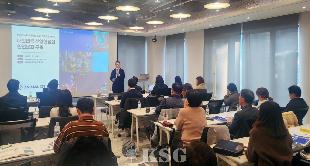



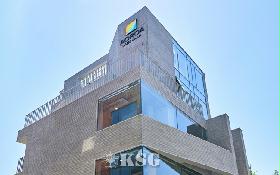
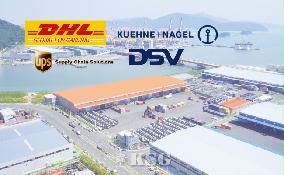

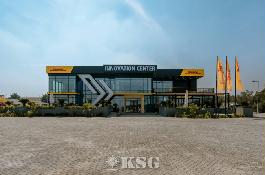
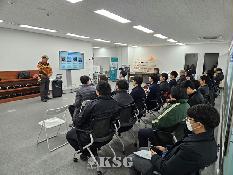

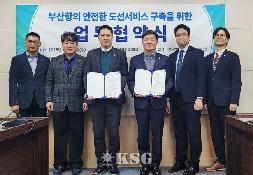
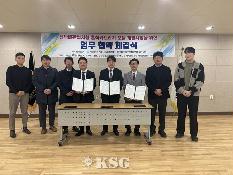

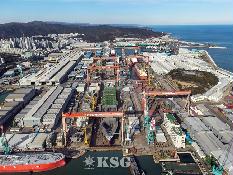
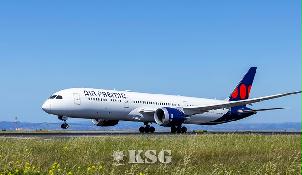
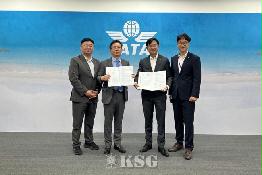

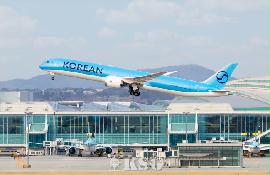


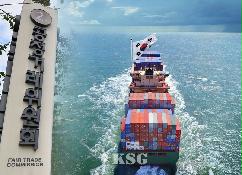
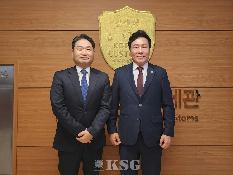


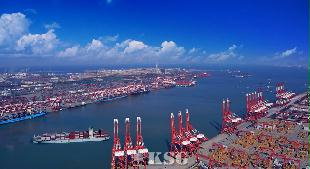
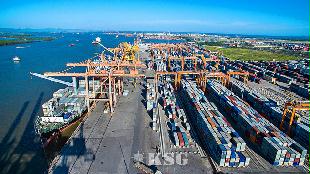
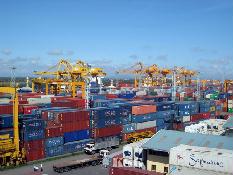






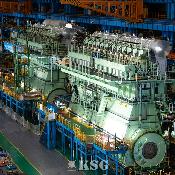
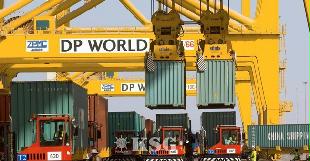
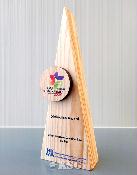
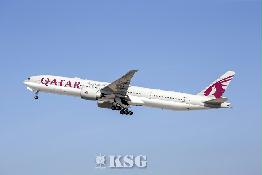





















0/250
확인